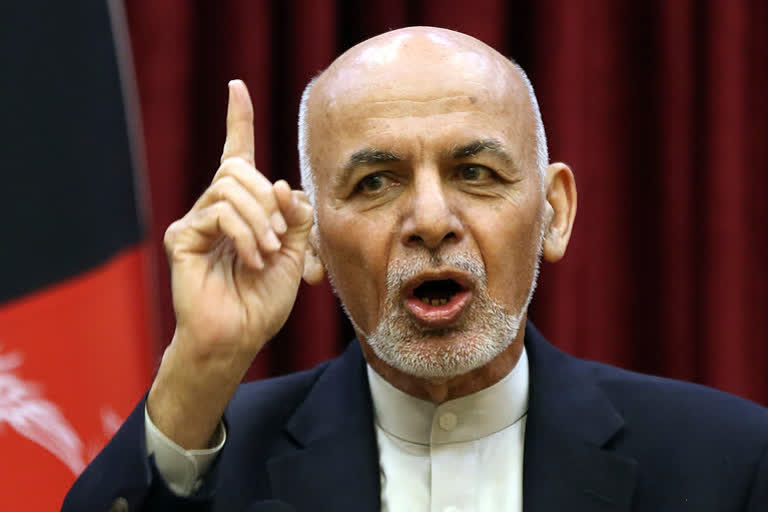Kabul: Afghan President Ashraf Ghani has shared the details of his three-phase roadmap to restore peace in Afghanistan with envoys of various countries, Tolo News reported citing sources.
Ghani shared the details during a meeting on Sunday. The meeting was attended by some of the envoys include NATO's senior civilian representative, the acting head of the UN mission in Afghanistan and ambassadors of EU member nations, as well as envoys from neighbouring countries and Muslim nations.
The plan has three parts, sources said.
Ghani is expected to make the plan public next week. Sources at the Presidential Palace said that the plan has three phases: (1) making peace or holding talks with the Taliban, (2) building peace - with language that hints at a transitional government, and (3) sustaining peace, which indirectly refers to a post-transitional government situation.
This comes as efforts are underway in Doha to set a date for the Turkey conference. Involved parties have yet to reach an agreement on the time and agenda of the event.
"We will have a special (response) from our side, but whether something will be presented there or not, we will make a decision later," said the Taliban spokesman in Doha, Mohammad Naeem.
Also read: One killed, two injured in triple shooting in US Virginia Beach
Sources said that a potential date for the upcoming conference in Turkey is April 16, but the involved parties have not reached an agreement.
Last week, representatives from the UN, Turkey, Qatar and the US met the peace negotiating team of Afghanistan in Doha and discussed the agenda of the Istanbul conference on Afghan peace.
A member of the peace negotiating team representing Afghanistan in the talks with the Taliban said, "The meeting was aimed to gather views on the agenda of the upcoming meeting in Turkey," as reported by Tolo news.
Afghanistan has been marred by insurgency for two decades. Along with the continuous violence, the political dysfunction has worsened the situation and made it impossible to attain peace in the war-ravaged nation.
As of January 2019, the New York Times, citing a U.S. government estimate, reported that "only 53.8 per cent of districts were 'controlled or influenced by the government, while 12.3 percent of the districts were under insurgent control or influence and 33.9 percent of districts were contested.
Also read: Indonesia landslides, floods kill 55 people; dozens missing
Meanwhile, sources close to the Taliban have said that the US continues to push for a three-month extension of the May 1 deadline for US forces to leave Afghanistan.
President Joe Biden is considering keeping US troops in Afghanistan until November, rather than withdrawing them by a May 1 deadline outlined in the Doha agreement.
Earlier this week the US special envoy for Afghanistan's reconciliation, Zalmay Khalilzad, met with senior Taliban leaders including Mullah Baradar, the head of the Taliban's political office in Doha, to discuss provisions of the US-Taliban peace agreement, including the withdrawal of US forces from Afghanistan.
The Taliban warned the United States on Friday against defying a May 1 deadline for the withdrawal of US and NATO troops from Afghanistan, promising a "reaction" though failing to specify exactly what it would be.
Doha agreement was signed in February 2020 between the Taliban and United States with an aim to end the 18-year-old conflict in Afghanistan.
The agreement calls for a full US withdrawal from Afghanistan if the terror group upholds counterterrorism commitments such as denying safe haven to al Qaeda.
(ANI)



